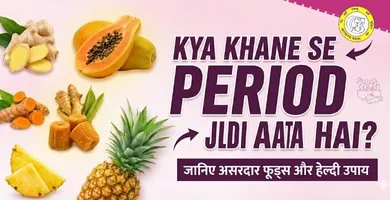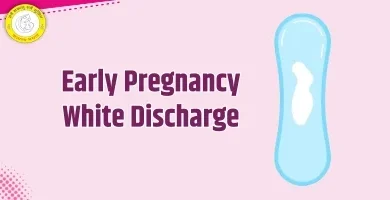Minimum Egg Size to Get Pregnant – Dr. Rashmi Prasad, Patna

When you are trying to get pregnant then you must have heard that the size of the egg is an important factor in pregnancy. However, what is the minimum egg size to get pregnant naturally or through treatment?
In this Article
Dr. Rashmi Prasad, the famous fertility specialist, who has worked in the field of fertility for more than 25 years, has guided thousands of couples to realize this delicate balance at Diwya Vatsalya Mamta Fertility Centre. We are going to discuss in this article, the meaning of egg (or follicle) size, the requirement of minimum size of eggs to conceive and what you can do to help your follicles grow to a healthy size to achieve a successful pregnancy.
Understanding Egg Size and Follicle Growth
Every month, your ovaries will create numerous small sacs termed follicles each one of them holds an immature egg. One of these follicles becomes dominant and becomes larger in comparison to other follicles as you enter into your menstrual period and this is the one that will ultimately produce a mature egg during ovulation.
Physicians do not measure the egg directly since it is microscopic. Rather, they rely on ultrasound imaging to determine follicle size – providing an indirect but precise measure of egg maturity. The bigger and healthier the follicle, the more likely it is that the egg inside is mature enough to be conceived.
The follicles normally commence during the follicular phase as follicles of about 3-5 mm diameter and gradually develop at 1-2 mm/day. Once the dominant follicle grows to the optimum size, it secretes the LH surge which induces ovulation.
What Is the Minimum Egg Size to Get Pregnant?
The perfect size of follicle prior to ovulation is estimated at 18 mm-22 mm. The range indicates that the egg within it is mature and fertilizable.
- Below 16 mm → The egg is likely immature and may not fertilize properly.
- 18–22 mm → Considered the best range for conception, either naturally or through IUI/IVF.
- Above 24 mm → The egg might be over-mature, which can lower its quality.
At Diwya Vatsalya Mamta Fertility Centre, Dr. Rashmi Prasad and her team monitor the development of follicles under a close supervision with the help of modern ultrasound and hormone tests. This assists in identifying the ideal ovulation, intrauterine insemination (IUI) or egg retrieval to use in IVF to enhance the prospects of pregnancy.
Why Egg Size Matters in Fertility Treatments
The size of the egg directly affects your probability of conception since it dictates the maturity and the viability of the released egg. Various fertility therapies are based on the measurement of the follicle size in certain phases:
1. Natural Conception
When you are conceiving naturally, the follicle size of about 18-20 mm at ovulation is optimal. At this level, the egg is already fully developed and can be fertilized by sperm.
2. IUI (Intrauterine Insemination)
During IUI treatment, insemination is scheduled when follicles reach 18–20 mm. This makes sure that the egg that is released during ovulation is at full maturity and you are most likely to become pregnant.
3. IVF (In Vitro Fertilization)
In IVF treatment, eggs are retrieved from follicles measuring around 18 mm or more, which is the size that doctors use to retrieve eggs, because this is the follicle size that would most likely be in the MII (mature) stage, and therefore fertilize in the lab.
How to Support Healthy Egg and Follicle Growth
There is a great deal of lifestyle, diet, and hormonal influence on the health and size of your follicles. Here is one way that you can stimulate more follicle development naturally:
1. Eat a Fertility-Friendly Diet
Consume foods rich in:
- Iron, zinc, and folate – to support egg health and hormone production.
- Omega-3 fatty acids – found in fish, chia seeds, and flaxseeds for improving ovarian function.
- Vitamin D and antioxidants – to promote egg quality.
- Protein – from lean meats, eggs, and legumes for hormonal balance.
2. Stay Active and Manage Stress
Workouts enhance the circulation of the blood to the reproductive organs. Light exercises like yoga, walking, and deep breathing will decrease stress hormone which disrupts ovulation.
3. Maintain a Healthy Weight
Underweight as well as overweight can interfere with ovulation. Target a BMI of 19-25 to the regular cycles and normal hormone levels.
4. Get Medical Support When Needed
Doctors can prescribe ovulation-stimulating drugs such as Letrozole, Clomiphene Citrate, or mild hormone injections, in case the natural methods are not sufficient. Such treatments assist in the growth of follicles and their attainment of the optimal size.
In Diwya Vatsalya Mamta Fertility Centre, the patients are provided with individualized treatment plans based on their cycle, and therefore the optimum growth of follicles.
Can Pregnancy Happen if the Egg Size Is Smaller?
Yes, but the chances are lower. Ovulation and fertilization may still happen in cases when the follicle is marginally less than 18 mm particularly in women with naturally quicker ovulation cycles. Minor follicles however, tend to empty immature ova that might not fertilize or implant successfully.
In case your follicles have continued to stop early or are small, it is likely that your fertility specialist will explore possible causes, as:
- Hormonal imbalance (FSH/LH ratio issues)
- PCOS (Polycystic Ovary Syndrome)
- Poor ovarian reserve
- Premature ovulation or luteal phase defects
What Dr. Rashmi Prasad Says
The size of an egg is not the only fertility puzzle. Pregnancy occurs when the time is right, the egg is good, and the uterus is healthy. Through frequent ultrasound check up and well-advised treatment schedule, we will be able to transform the dream of any optimistic couple into reality.
Dr. Rashmi Prasad, Senior IVF Specialist Doctor strongly insists that follow-up and individualized fertility approach would be a big difference in getting pregnant either naturally or under the aid of assisted reproduction.
Conclusion
Understanding the minimum egg size to get pregnant helps you gauge your fertility health. However, conception success also depends on egg quality, hormonal balance, sperm health, and uterine readiness.
If you’re in Patna or Bihar and facing challenges conceiving, visit the Best IVF Centre in Patna, Diwya Vatsalya Mamta Fertility Centre. Under the expert care of Dr. Rashmi Prasad (25+ years of experience), you’ll receive advanced fertility treatments and compassionate care tailored to your needs.
📍 Address: 234/235, Near Laddoo Gopal, Patliputra Colony, Patna – 800013
📞 Call for Appointment: +91-9771038137
✨ Your journey to parenthood begins with one step.
FAQs
What is the minimum egg size to get pregnant naturally?
According to a scientific study on follicle size and ovulation (NCBI). The ideal egg or follicle size before ovulation is 18–22 mm for higher chances of natural conception.
Does the size of the egg in IVF treatment matter?
Absolutely. In IVF, the eggs are harvested after the follicles are light green at the size of about 18–22 mm, which is the size that denotes maturity and increased possibility of fertilisation.
What would happen in the event that my follicles are not growing well?
The slow growth of the follicle can be attributed to hormonal imbalance, PCOS, or thyroid disorders. Normal follicular development may be restored by early diagnosis and appropriate medical advice by a fertility clinic.
How can I increase egg size naturally?
Maintain a balanced diet, exercise regularly, manage stress, and ensure good vitamin and hormone levels.
Where can I consult a fertility doctor in Patna?
Meet Dr. Rashmi Prasad at Diwya Vatsalya Mamta Fertility Centre, Patna’s top IVF clinic for fertility and IVF treatments



